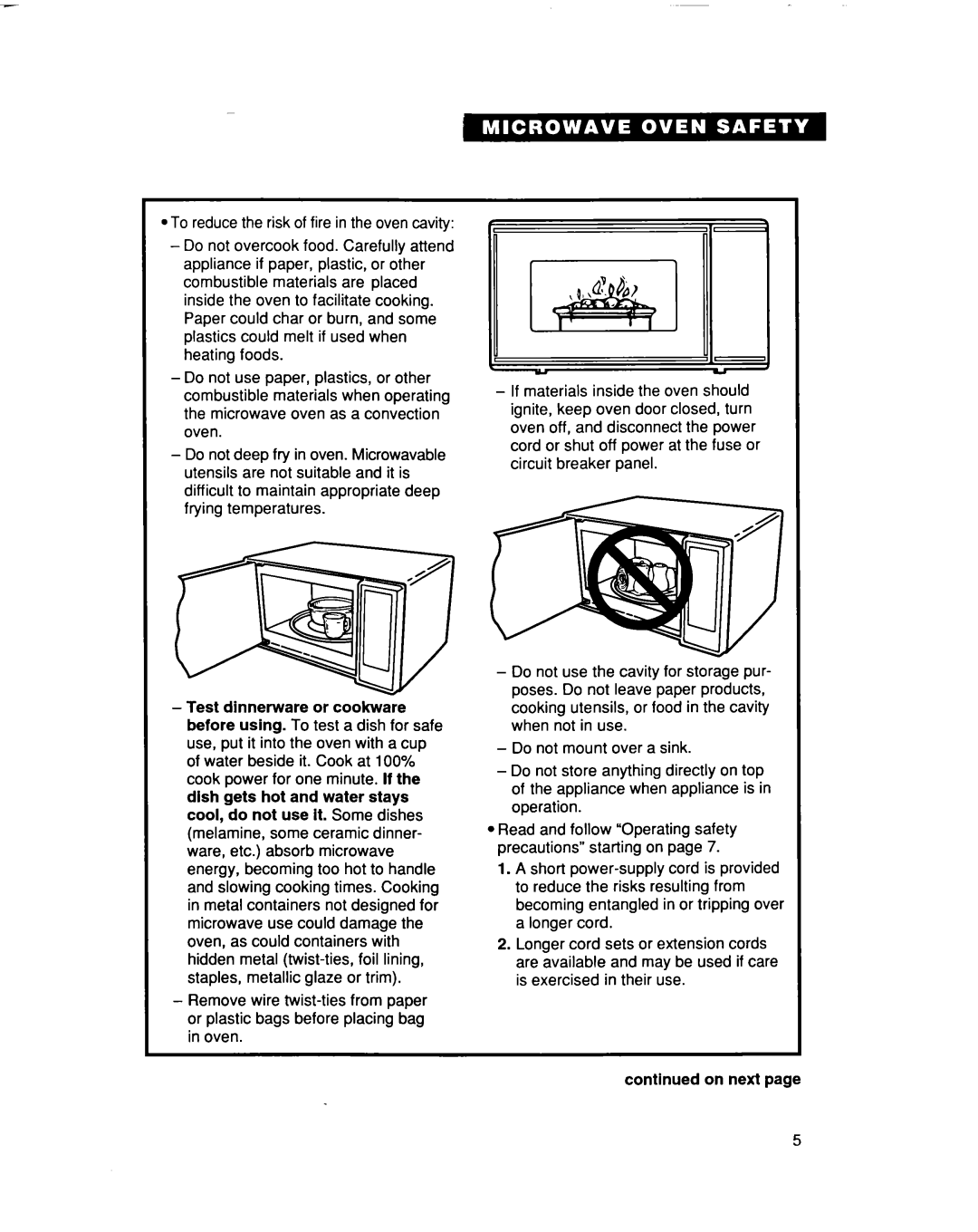
.To reduce the risk of fire in the oven cavity:
-Do not overcook food. Carefully attend appliance if paper, plastic, or other combustible materials are placed inside the oven to facilitate cooking. Paper could char or burn, and some plastics could melt if used when heating foods.
-Do not use paper, plastics, or other combustible materials when operating the microwave oven as a convection oven.
-Do not deep fry in oven. Microwavable utensils are not suitable and it is difficult to maintain appropriate deep frying temperatures.
-Test dinnerware or cookware
before using. To test a dish for safe use, put it into the oven with a cup of water beside it. Cook at 100% cook power for one minute. If the dish gets hot and water stays cool, do not use it. Some dishes (melamine, some ceramic dinner- ware, etc.) absorb microwave energy, becoming too hot to handle and slowing cooking times. Cooking in metal containers not designed for microwave use could damage the oven, as could containers with hidden metal
-Remove wire
-If materials inside the oven should ignite, keep oven door closed, turn oven off, and disconnect the power cord or shut off power at the fuse or circuit breaker panel.
- Do not use the cavity for storage pur- poses. Do not leave paper products, cooking utensils, or food in the cavity when not in use.
-Do not mount over a sink.
-Do not store anything directly on top of the appliance when appliance is in operation.
l Read and follow “Operating safety precautions” starting on page 7.
1.A short
2.Longer cord sets or extension cords are available and may be used if care is exercised in their use.
continued on next page
5
